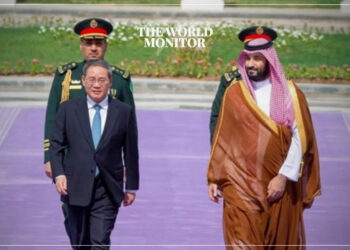COP28 Leaders Tackle Revival of Carbon Credits Market
Or
John Kerry Emphasizes Potential of Carbon Market
Or
World Bank’s Plan for Carbon Credit Production
During the COP28 climate summit financial leaders, from banks, regulatory bodies and senior officials are dedicated to revitalizing the voluntary carbon credits market. This market has faced credibility challenges in the past. Independent certification organizations such as Verra have aligned themselves with the standards set by the Integrity Council, for Voluntary Carbon Markets with the goal of rebuilding trust in the system.
The market, plagued by verification challenges, theoretically represents a tonne of carbon either avoided or removed from the atmosphere. However, scrutiny over projects, especially in areas like Zimbabwe and Peru, has heightened due to uncertain carbon savings accounting.
The new standards being implemented aim to ensure credible, lasting emissions reductions and prevent double-counting of credits between countries and companies. US Climate Envoy John Kerry highlighted the market’s potential, despite recent setbacks caused by dubious carbon credit offerings in voluntary markets.
Financial giants such as Bank of America, Morgan Stanley, and Standard Chartered, along with major corporations like Amazon and McDonald’s, have endorsed the US Department of State’s Energy Transition Accelerator (ETA). This initiative, aimed at countries including Chile and Nigeria, seeks to sell emission reductions from April next year to support shifts from polluting energy sources.
The ETA’s framework focuses on high-level national data and measures emission reductions against historical levels, rather than projected future emissions. This approach aims to improve upon existing voluntary models.
Leaders from countries reliant on coal, like Singapore, Indonesia, and the Philippines, view carbon finance as vital for their energy transitions. The Rockefeller Foundation is working towards closing a coal-fired power plant in the Philippines by 2030 using carbon credits.
Jean-Paul Servais from the International Organization of Securities Commissions proposed measures to prevent fraud and increase market liquidity. Concerns about market accounting and integrity remain, as highlighted by Verena Ross, Chair of the European Securities and Markets Authority.
The World Bank is also engaged, planning to bring 24 million carbon credits to market in the next two years from projects in countries like Vietnam and the Democratic Republic of Congo. However, Ajay Banga, president of the World Bank, acknowledges the intellectual debates slowing credit production.
Climate experts, including Simon Stiell, Executive Secretary of the UN’s climate body, warn against relying solely on voluntary markets for emission cuts, emphasizing the need for robust internal reductions by the private sector.






